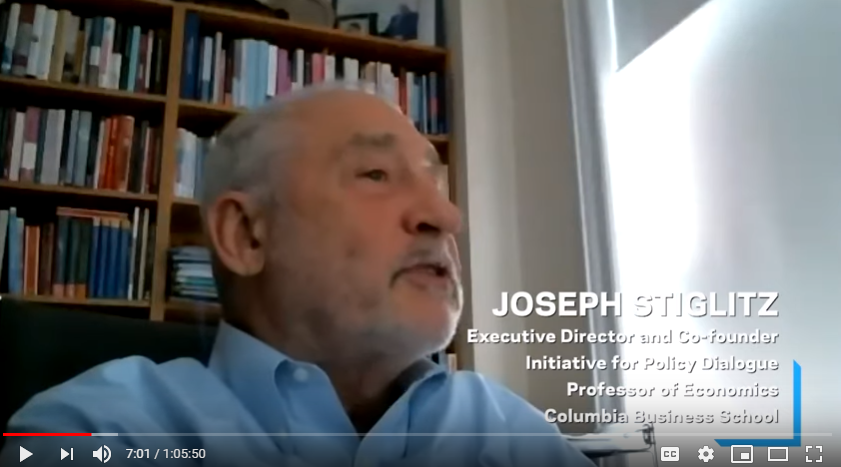On March 26, Columbia Business School (CBS) hosted a webinar discussion with Dean Emeritus Glenn Hubbard and Nobel laureate Joseph Stiglitz on the economic upheaval caused by the COVID-19 epidemic.
“This pandemic is very different from a normal recession,” Hubbard said. In the US, “unemployment insurance claims have gone to 3.3 million new people filing in a week. A number of over 400,000 would mean a significant recession. Obviously, a recession is in the offing.”
The goal in economic terms is to keep people attached to work. “We can stop a doom loop from mass layoffs and from a lot of business closures,” he added. “If done right, it will be a V-shaped recovery – steep downturn followed by a steep upturn. If we get policy wrong, we’re in trouble.”
To get business back on its feet as soon as possible, Hubbard recommended cash deposits to SMBs via bank loans, which can then be forgiven if those companies keep their workers in place instead of laying them off.
According to Stiglitz, government policy needs to focus on three areas: health, protecting the vulnerable and restarting the economy. “To protect health, you need sick people to stay at home, and so you need paid sick leave. There was an almost cynical act of [the US] congress that had a paid sick leave provision and 80% [of companies] were exempted. I think that was really foolish.”
“The US is fortunate in that it can have a US$ 2 trillion program,” he said. “Developing countries and emerging markets are not in such a lucky place… They’ll need a lot of help in the health care sectors.”
“The flatter you’re making the pandemic curve, the steeper the economic cost – that’s the trade-off,” added Hubbard.
The exclusive virtual town hall, moderated by MBA candidate Anthony Villamagna, marked the first of such events to cover current topics with faculty, to be hosted throughout the semester.
Use this link to access a video recording of the webinar.

